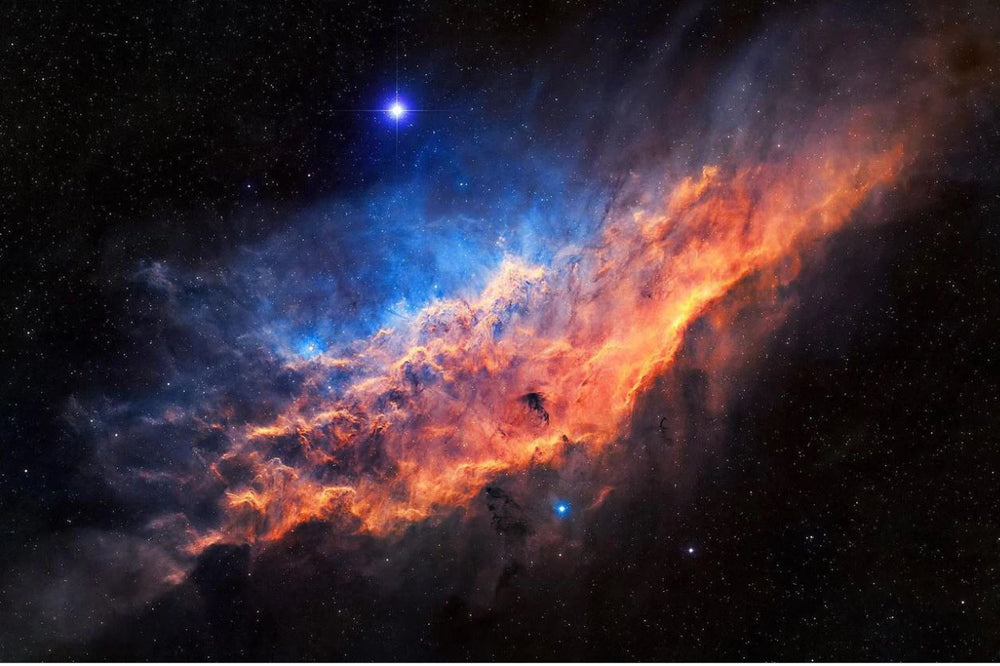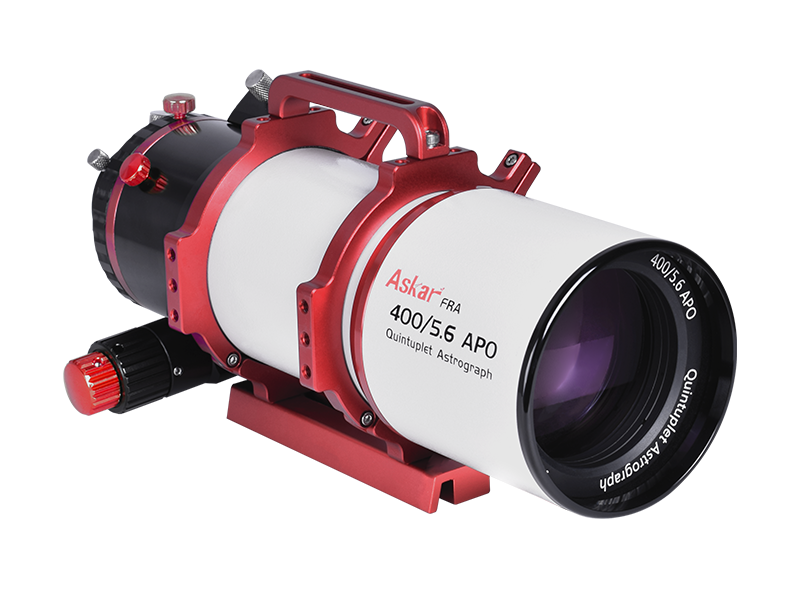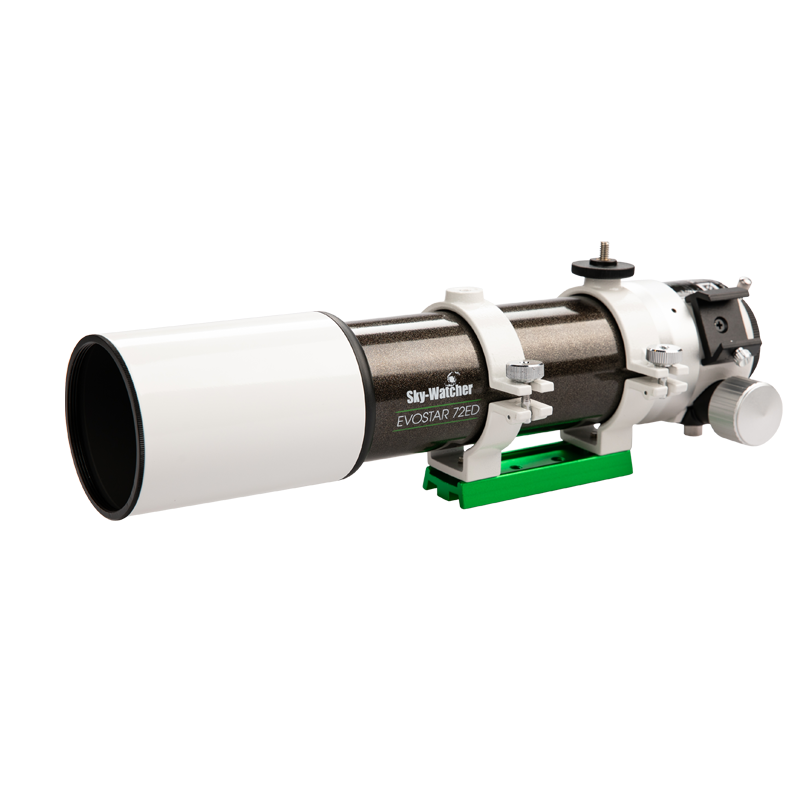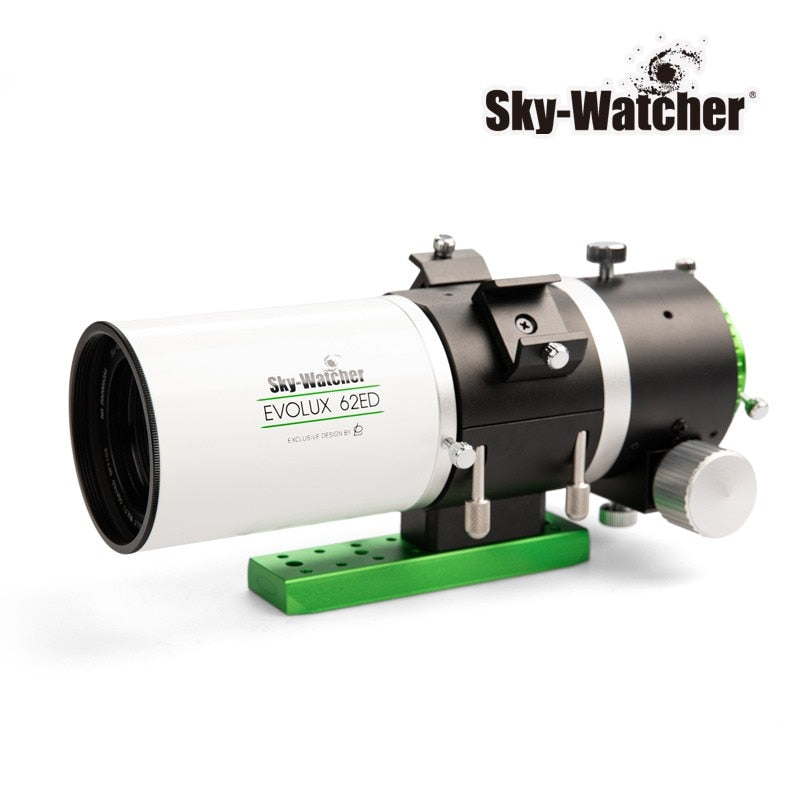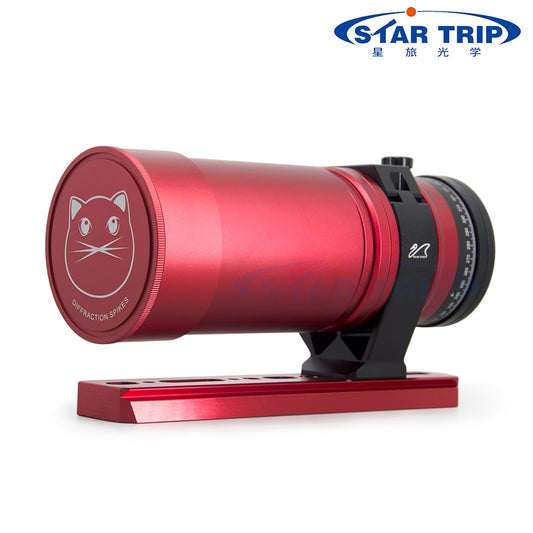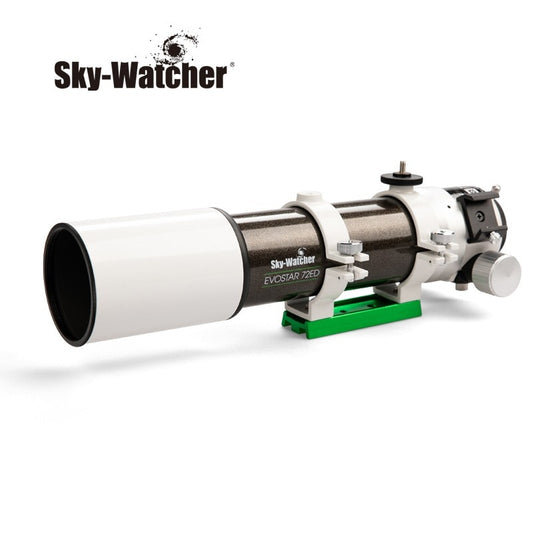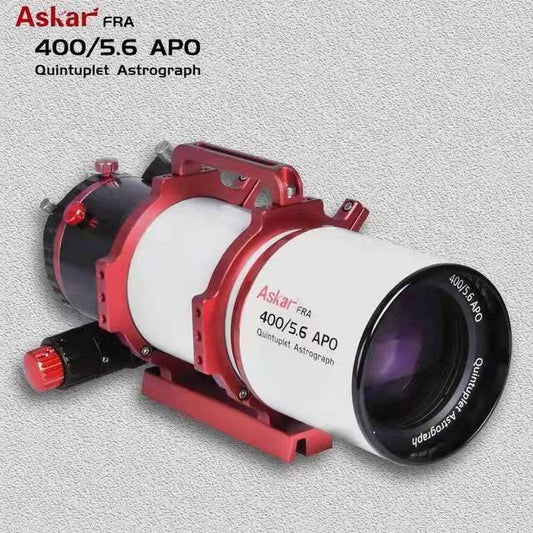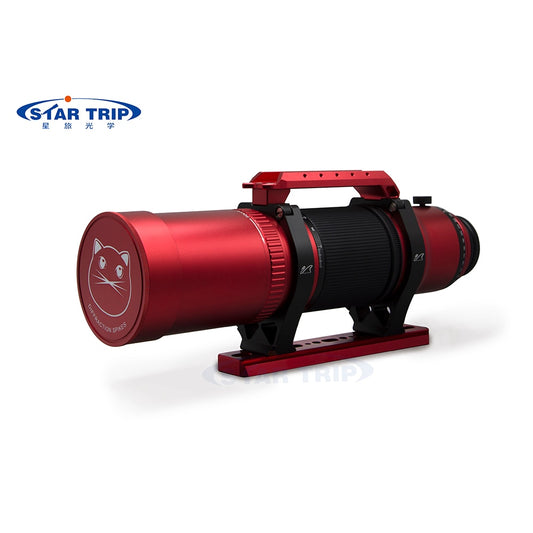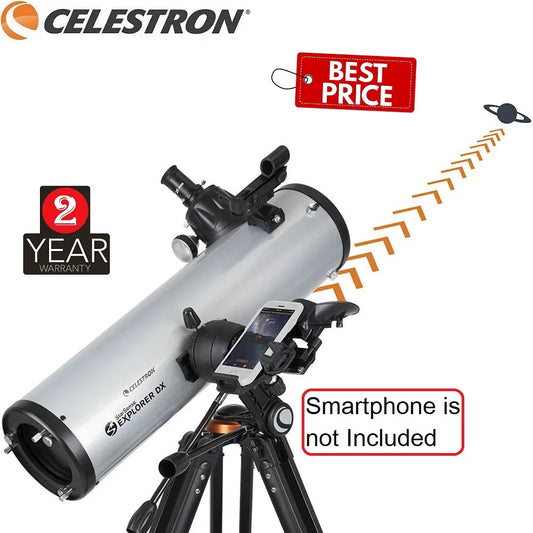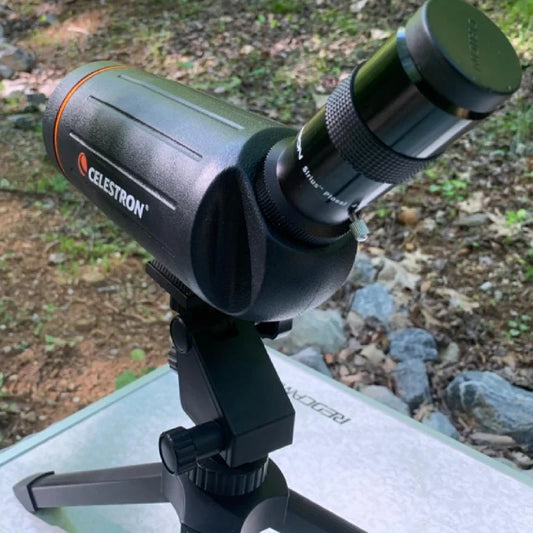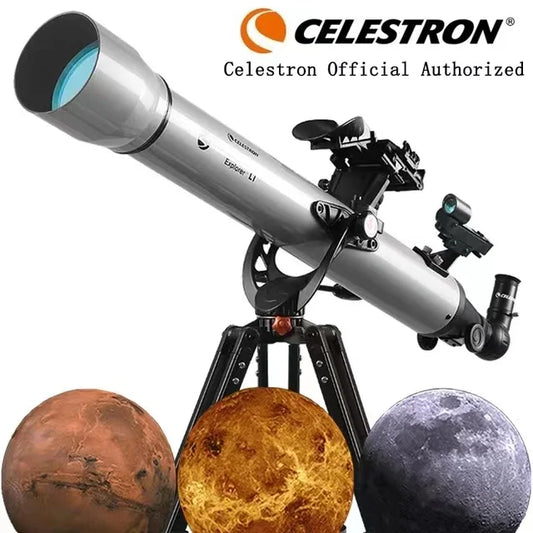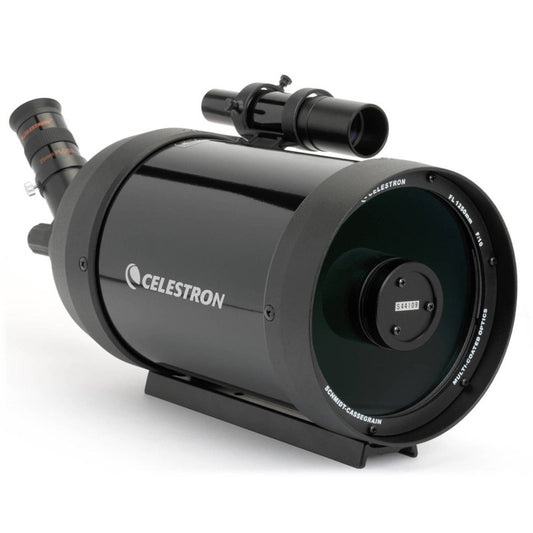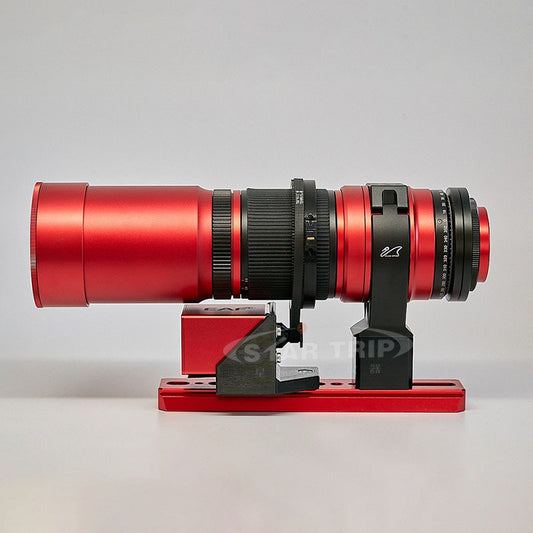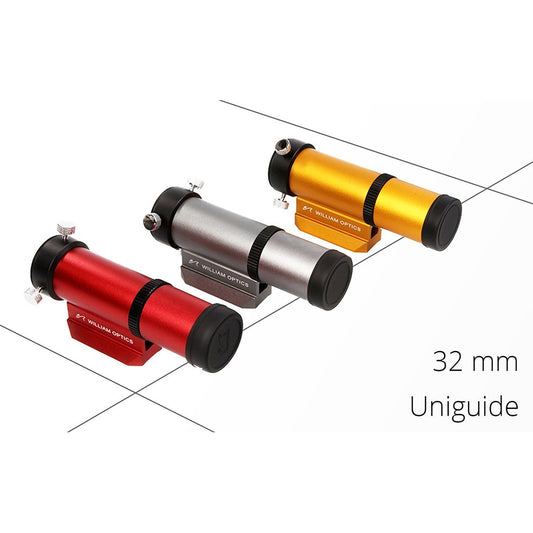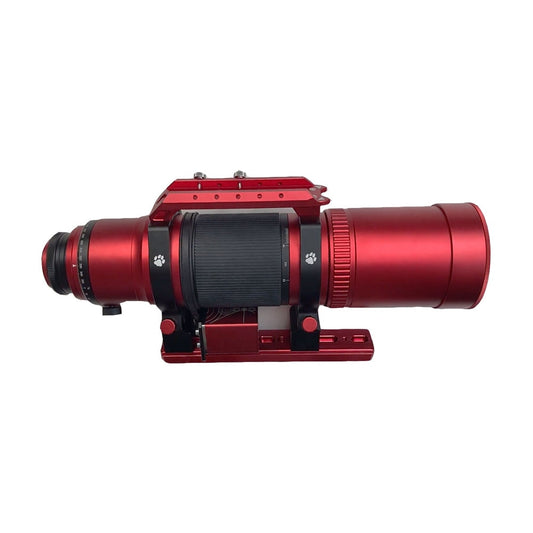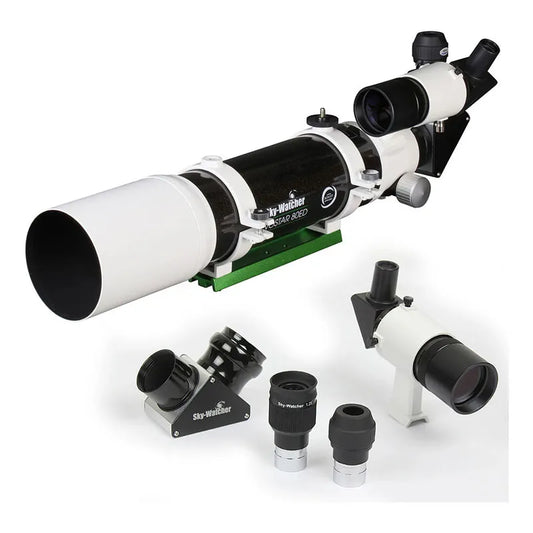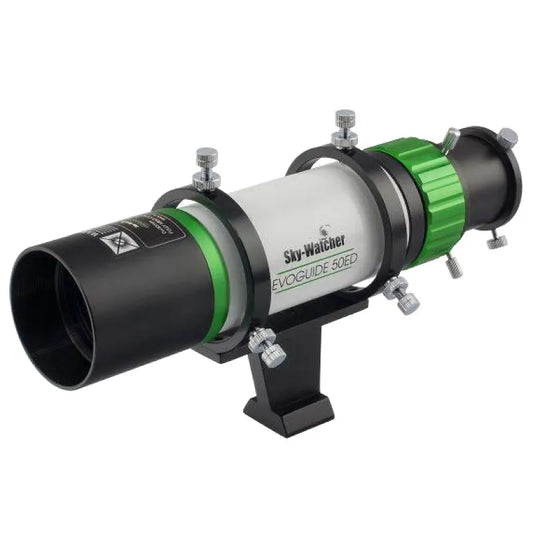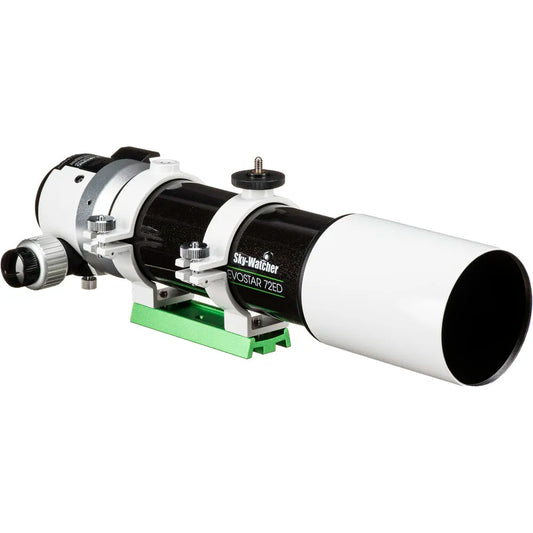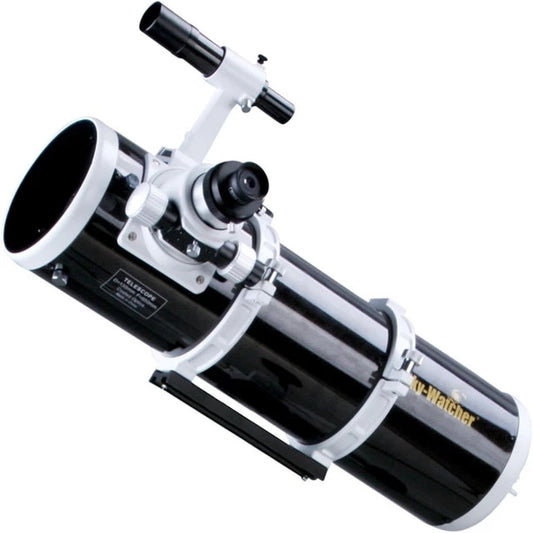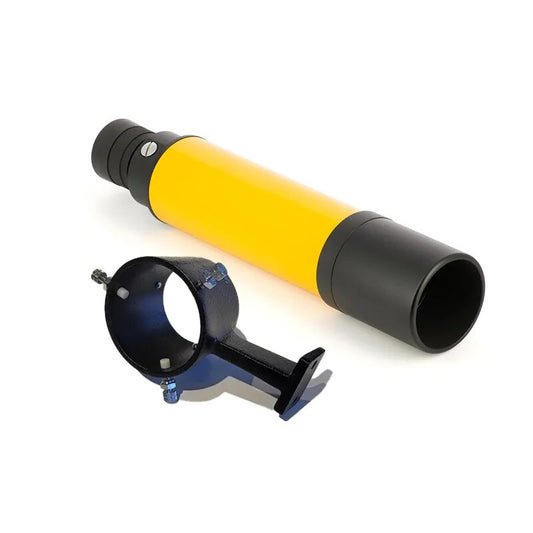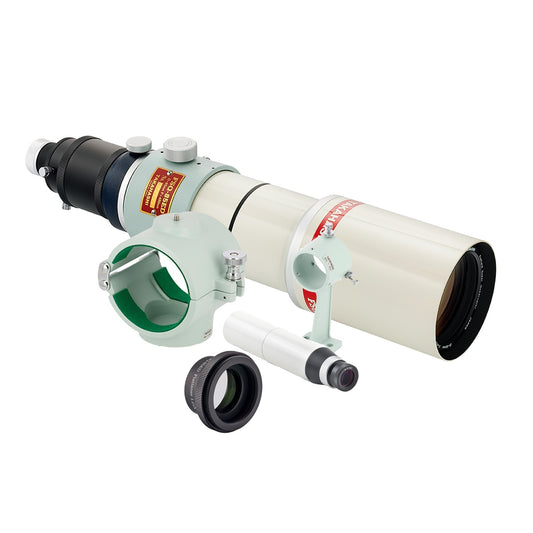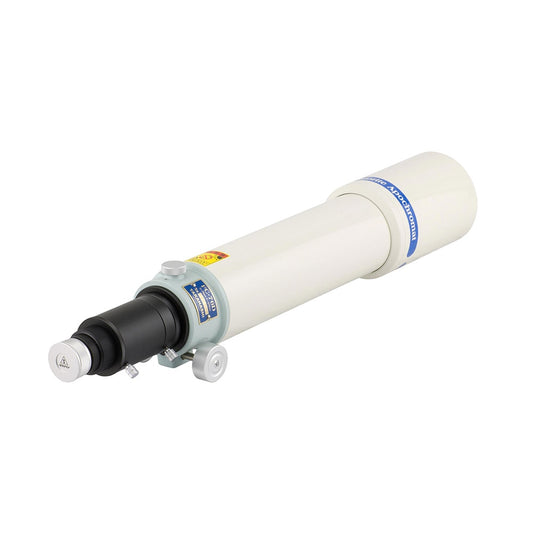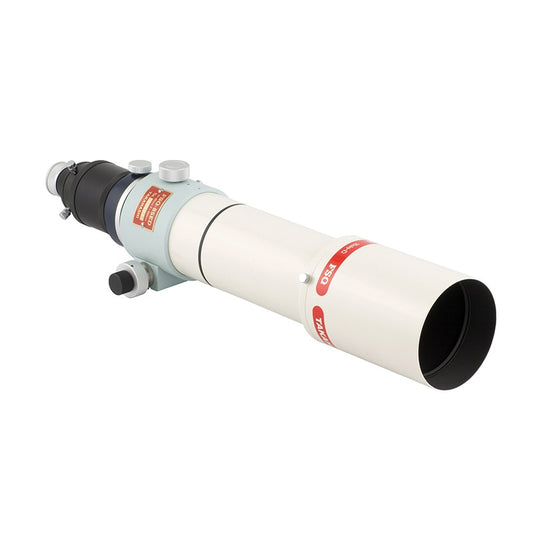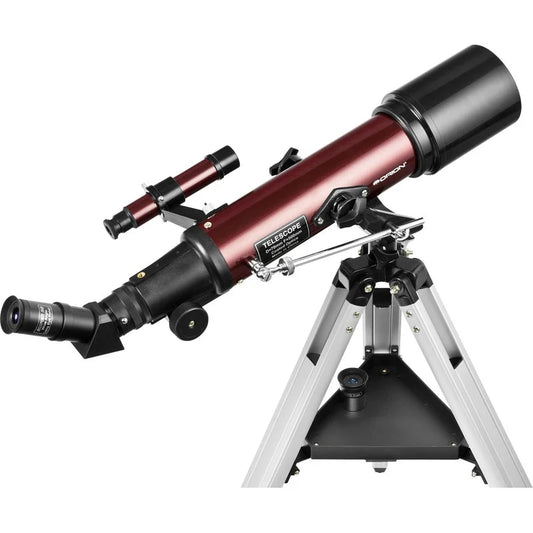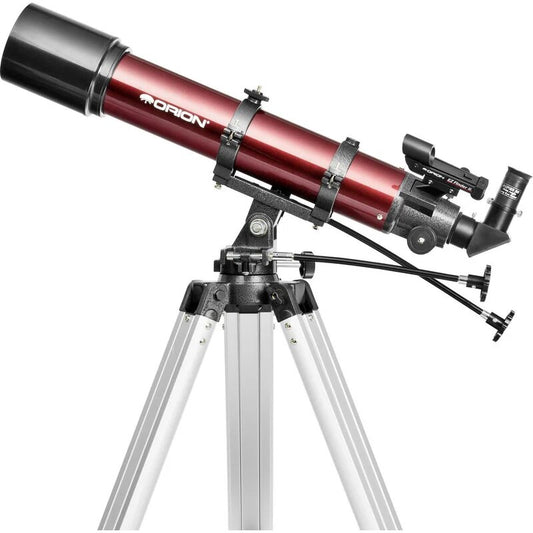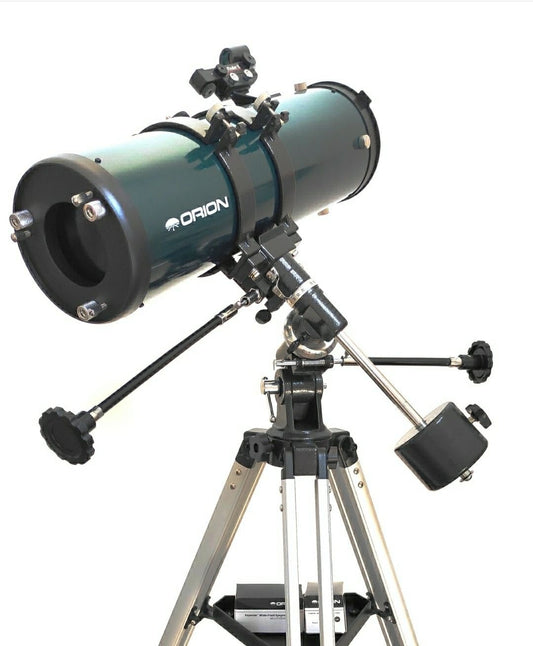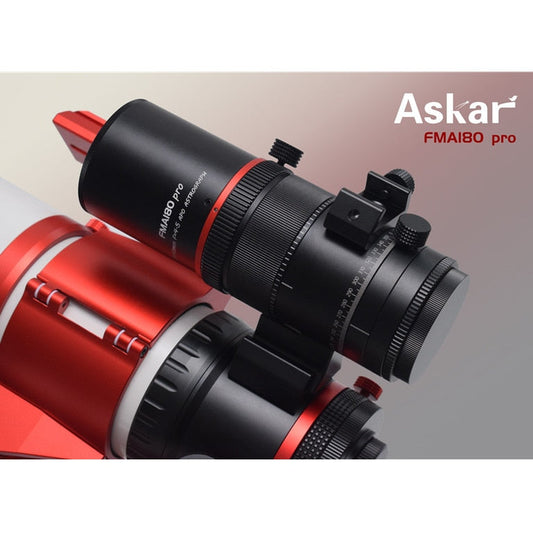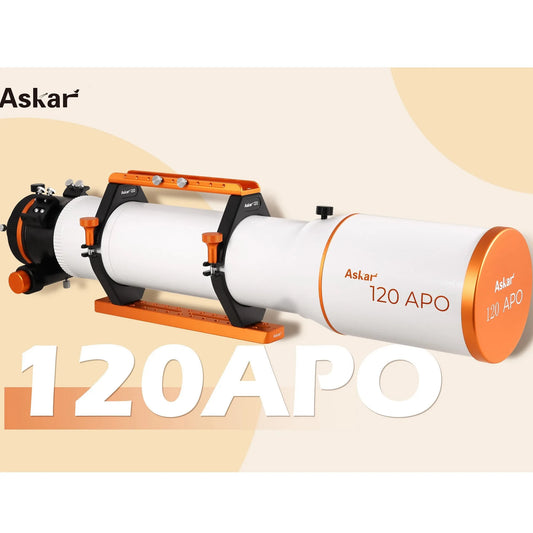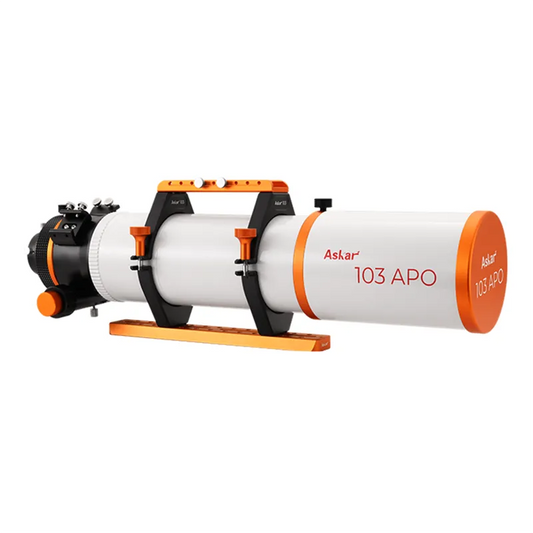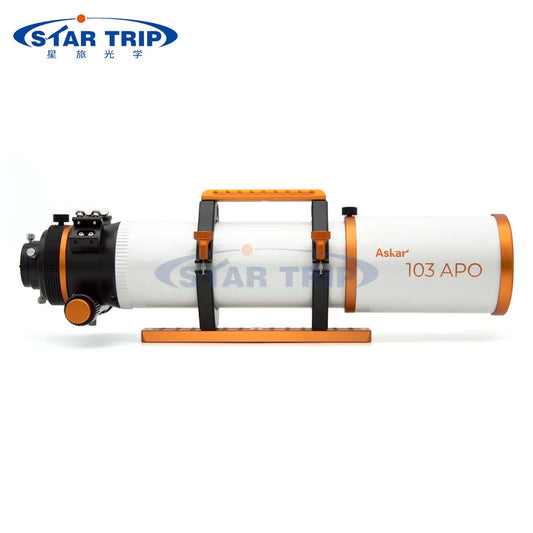Best Telescopes for Beginners: A Comprehensive Guide
Are you a beginner looking for the best telescope to start your stargazing journey? With so many options available in the market, choosing the right one can be overwhelming. But don't worry, we've got you covered! In this comprehensive guide, we'll take you through some of the best telescopes for beginners.

1. William Optics RedCat 51
The William Optics RedCat 51 is a standout choice for astrophotographers, offering a focal length of 250mm that hits the sweet spot for wide-field astrophotography. This versatile telescope provides a captivating view of celestial wonders, including the Orion Nebula, Andromeda Galaxy, Heart and Soul Nebulae, and the North America Nebula, all easily fitting within its field of view. What sets the RedCat 51 apart is its premium apochromatic optics in a Petzval design, outperforming many brand-name camera lenses of similar focal lengths. Its fast focal ratio of f/4.9 ensures impressive image quality and makes it a powerful imaging tool.
The RedCat 51 incorporates top-tier synthetic fluorite FPL53 and FPL51 glass in a 4-element, 3-group classic Petzval design. This results in exceptional color correction and an impressively flat field, eliminating the need for a field flattener. Moreover, its 43mm image circle is compatible with APS-C and full-frame DSLRs, mirrorless cameras, and dedicated astronomy cameras. With a full-frame sensor, this telescope offers an expansive field of view, nearly 10 degrees across the sensor diagonal, allowing you to capture wide-field images with remarkable detail. Whether you're an amateur astrophotographer or a seasoned pro, the William Optics RedCat 51 is your ticket to breathtaking wide-field astrophotography. Elevate your cosmic imaging adventures and capture the beauty of the night sky like never before.
2. Askar FRA400
The Askar FRA400, a member of the innovative Flat-field Refractive Astrograph (FRA) series, is a true game-changer for wide-field deep-sky imaging. With its 72mm aperture and a fast f/5.6 focal ratio (400mm focal length), this quintuplet refractor is engineered for exceptional performance. Its APO objective consists of three precision-crafted elements, while the remaining two are expertly placed in the field-flattener just ahead of the focuser. This design ensures pinpoint stars all the way to the edge of the image plane within its generous 44mm image circle, making it an ideal choice for cameras with sensors of 1" or smaller.
The FRA400 comes equipped with an array of impressive features, including a retractable dew shield, a 3" rack-and-gear-based high-precision reducer with a 360-degree rotator, an M68×1 thread, a 2" adapter ring, and a 1.25" visual adapter. This reducer also boasts a fine focal adjustment function for precise calibration during practical observations or sky imaging. With a back focus of 140mm, you can focus easily from the base of the mounting thread to the focal plane, simplifying your astrophotography setup.
For astrophotographers seeking even shorter focal lengths, the FRA400 includes an ultra-focal reducer that takes it a step further, achieving a remarkable f/3.9. This combination supports full-frame imaging and provides even wider fields, dramatically reducing exposure times.
The Askar FRA400 is a fast, highly portable astrograph that offers exceptional value, approaching the performance levels of telescopes with significantly higher price tags. Whether you're a seasoned imager or just starting, this astrograph is your gateway to capturing breathtaking wide-field deep-sky images with precision and ease. Elevate your astrophotography game and experience the cosmos like never before with the Askar FRA400 by your side.
3. Sky-Watcher EvoStar 72ED
The Sky-Watcher Evostar 72ED telescope is a game-changer in the world of astrophotography. With its premium 72mm aperture and Extra-Low Dispersion (ED) optics, it delivers breathtakingly sharp and contrast-rich images. Its versatile 420mm focal length makes it ideal for capturing a wide range of celestial subjects, from detailed lunar craters and planetary surfaces to deep-sky wonders like galaxies, star clusters, and nebulae. The telescope's compact and portable design ensures you can take it to your favorite stargazing spots effortlessly. Whether you're an aspiring astrophotographer or a seasoned enthusiast, the Evostar 72ED offers incredible value with its high-quality optics and versatile capabilities. It's your ticket to explore the universe and capture its beauty with unparalleled clarity. Elevate your astrophotography journey today with the Sky-Watcher Evostar 72ED.
4. Sky Watcher Evolux 62ED
The Sky-Watcher Evolux 62ED telescope is a compact yet powerful instrument designed to elevate your astrophotography experience. With its 62mm aperture and Extra-Low Dispersion (ED) optics, it delivers outstanding image clarity and color correction. The telescope's 400mm focal length is perfect for capturing a wide range of celestial subjects, from detailed lunar landscapes to distant galaxies, star clusters, and nebulae. Its lightweight and portable design make it a breeze to transport to your preferred stargazing locations. Whether you're a novice or a seasoned astrophotographer, the Evolux 62ED offers exceptional versatility and high-quality optics, allowing you to explore the cosmos and capture its wonders with exceptional precision.
With its ED tube and high-power HD 62/400mm lens, this telescope is perfect for both amateur and professional astronomers who want to capture the beauty of the cosmos.
5. Celestron NexStar 5SE Telescope
The Celestron NexStar 5SE Telescope is perfect for beginners who want a portable, easy-to-use telescope. It has a 5-inch aperture and a computerized GoTo mount, which means it can automatically locate and track celestial objects. The telescope also comes with a database of over 40,000 celestial objects.
Orion SkyQuest XT8 Classic Dobsonian Telescope
The Orion SkyQuest XT8 Classic Dobsonian Telescope is a great option for those who want a traditional telescope experience. It has an 8-inch aperture, which means it can gather a lot of light, allowing you to see fainter objects in the sky. The Dobsonian mount is easy to use and provides a stable base for the telescope.
6. William Optics ZenithStar 61
The William Optics ZenithStar 61 is a game-changer for astrophotographers seeking exceptional optical performance in a compact and portable package. With a 61mm aperture and FPL-53 glass, this telescope delivers razor-sharp, high-contrast images ideal for visual observation and astrophotography. Its fast f/5.9 focal ratio makes it perfect for capturing a wide range of celestial objects, from detailed lunar landscapes and planetary features to stunning deep-sky wonders like galaxies, nebulae, and star clusters. This versatile telescope covers full-frame sensors, ensuring you can capture expansive celestial vistas with ease. Additionally, its lightweight design and included accessories, such as the Cat Series handlebar and dovetail plate, make it a breeze to transport and set up for your imaging sessions. Whether you're a beginner or an experienced astrophotographer, the ZenithStar 61 offers unmatched optical quality and portability, making it your ideal tool to capture the captivating beauty of the cosmos.
7. Celestron NexStar 6SE Telescope
The Celestron NexStar 6SE Telescope is a great option for beginners who want a more advanced telescope. It has a 6-inch aperture and comes with a computerized mount, making it easy to track objects in the night sky. The mount also has a database of over 40,000 celestial objects, making it easy to find and track specific targets.
One downside of the NexStar 6SE is its weight, which is a bit heavier than some other beginner telescopes. However, it is still portable enough to take on camping trips or to set up in your backyard.
Conclusion
Choosing the best telescope for beginners can be overwhelming, but with a little bit of research and understanding of the different types of telescopes available, you can find the perfect one for your needs. Keep in mind the size and portability, the type of mount, and the aperture when making your decision. It's also important to consider your budget and to remember that a high price doesn't necessarily mean better quality. By following these guidelines, you can embark on an exciting journey into the world of astronomy and start exploring the wonders of the universe.

